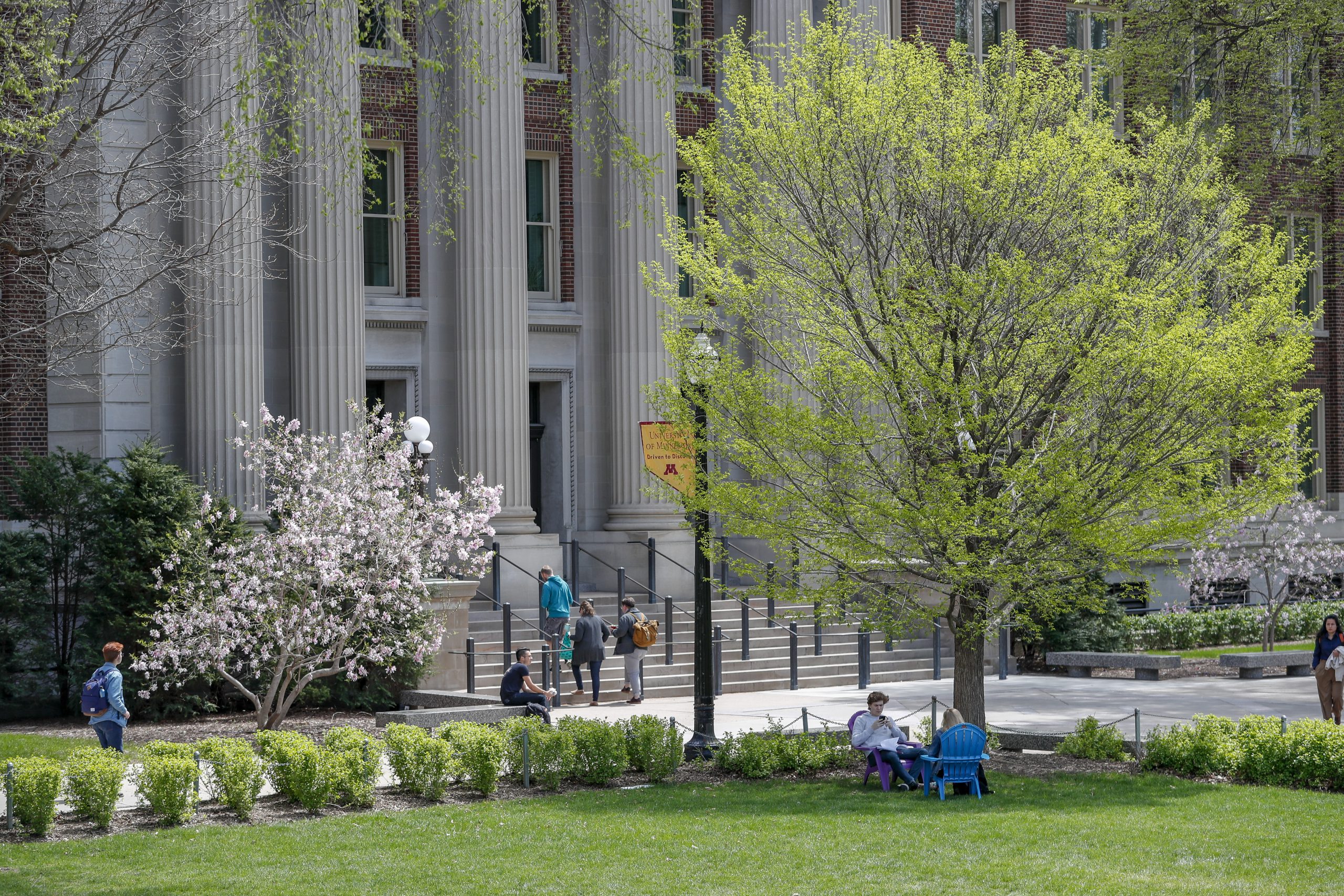Image: Jake Loeffler is an outreach coordinator and staff psychologist with Student Counseling Services. He got his doctorate in psychology from the Rosemead School of Psychology. Copyright © 2018 Regents of the University of Minnesota. All rights reserved
Jake Loeffler works with students to manage anxiety and relationships during sometimes-turbulent college years
By Jihwan Paik
Jake Loeffler, a staff psychologist at the University of Minnesota’s Student Counseling Services, knows that college is a time of great anxiety for students.
“College is a performance-based task. With any performance, there is always the question about whether [a student is] doing well enough, which induces fear,” he said.
Since 2018, Loeffler has been providing therapy to students who often need help managing that anxiety – one of the main diagnoses that account for the rise in reported mental health conditions among college students here and nationally, according to surveys. Before coming to the Twin Cities campus, he worked as a counselor at Biola University in La Mirada, California, where he completed his graduate studies, and then was a counselor for two years in Minnesota and Missouri.
Loeffler said it is a “great feeling” to make changes in students’ lives through his counseling work. His work includes one-on-one therapy and supervising graduate students learning to be counselors.
In addition to helping students with anxiety, Loeffler has seen students who struggle with relationships that do not go as expected. “It is hard to balance academics as well as having life outside of school,” he said.
He works with a range of students, including international students who experience similar mental health challenges as U.S. students,but often with some different factors. International students may struggle with adjusting to the new environment, financial pressure or language barriers, he said.
Loeffler’s therapeutic technique is to build awareness and insight into a student’s situation and then apply that insight to solve problems, he said.
He meets with between 10 to 25 students each week in his individual therapy, group therapy or drop-in sessions. The number of students depends on the day, since some of his time is focused on clinical work or administrative tasks and meetings, such as outreach presentations and consultations.
As in any therapy practice, trauma can sit at the heart of many interactions. Loeffler hears his share of stories from students who have experienced accidents, losses or deaths.
“It is tough to sit with the emotions that come with knowing some of the trauma that happens in our world,” Loeffler said.
As a psychologist, he said, he has cultivated his own way of coping with stress and anxiety. He plans time for activities that restore his energy and tries to have a work-life balance by taking breaks when he feels it is more difficult to be fully present in his work.
“I think it is important to feel a passion for what you are doing at work in addition to having a vibrant life outside of work,” he said.
In the end, Loeffler said his work brings him great satisfaction because he knows he makes a difference in students’ lives.
“Through the course of your time together, you get to see somebody start to go from surviving or maybe feeling overwhelmed to feeling like they have a better handle on life or enjoying their life to a greater extent,” he said.
This is one reason Loeffler pursued psychology as a career in the first place.
“I felt that meeting one-on-one and listening to others is an effective way to first understand someone and second help them make the changes they are wanting to make in their lives,” he said.

